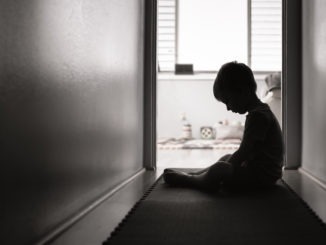
Following on from the first part of our analysis, Sean Coughlan, BBC News education and family correspondent, explores how, after nearly a year of catastrophies, Gavin Williamson is still education secretary
CREDIT: This is an edited version of an article that originally appeared on BBC News
Not about popularity
In many ways Williamson could do with more ‘big beasts’ such as Sir Michael Wilshaw around him, offering a wider range of opinions beyond those already seen as ‘fellow travellers’. Although as Ofsted chief he sparred – and often disagreed – with the then education secretary Michael Gove, Wilshaw was a strong independent voice on the education landscape.
Under increasingly intense criticism during the pandemic, in political terms, Williamson has been the only tree standing in no man’s land, and the only visible target for those wanting to complain about schools.
Laura McInerney, a former teacher, education pundit and head of the Teacher Tapp research firm, says what has really damaged Williamson has not been his unpopularity, but a perception that he is also ineffective.
Her survey of teachers showed 92% thought Williamson should resign, but she says education secretaries – particularly Conservative ones who can blame the unions – could still be seen as successful despite a lack of classroom support.
It’s the claims of chaos and lack of forward planning that have really harmed the education secretary; a headteacher who emailed the BBC last week described it as being like the TV comedy, Blackadder Goes Forth, with generals out of touch with the reality of their decisions.
‘Slick operator’
Such accusations of incompetence are strongly rejected by Sir Anthony Seldon, biographer of prime ministers and a former headteacher, who says calls to sack Williamson are missing the point. He says the education secretary is a “canny politician” and a “slick operator”, who faced an impossible “maelstrom” in the pandemic.
“It’s been an absolute nightmare. I can’t think of any time since 1945 when it’s been more difficult to make policy.” Education needed its own SAGE-style group of experts to come up with an evidence-based, agreed, approach, says Sir Anthony.
He says England’s school system is riven by “very low levels of trust and high levels of suspicion” between government and teachers and there was no chance of the shared decision-making that was needed.
Another complaint from Williamson’s allies is that he has faced snobbery – that the northern, non-Oxbridge politician from a comprehensive school is the member of the cabinet taking more than his fair share of public pressure.
Gone in a reshuffle
A source close to the education secretary says Williamson has stayed positive – and while the media narrative has been about U-turns and politicking, the priority within the Department for Education has been to keep responding to the pandemic, and to keep children and staff safe.
But a senior Conservative politician puts Williamson’s latest difficulties in a harsher light – the Department for Education is seen as dysfunctional, and Williamson will be removed from office as soon as there is a reshuffle, or when a head is needed to roll. He has lost so much political capital he can no longer stand up to other Whitehall departments, even over key issues such as opening schools, says the senior Tory. Another suggests Williamson will be removed when Boris Johnson wants to re-set his post-pandemic domestic policy and renew his agenda on ‘levelling up’.
Hidden divisions
So, how has Williamson survived so far? He was once considered a bright enough star to be a leadership contender and now the questions seem to be about how he has avoided the chop.
Politics works on many different levels. Before becoming education secretary Gavin Williamson was sacked as defence secretary, after an inquiry into leaks from the National Security Council – claims that Williamson denied. While he was defence secretary he had faced accusations of being out of his depth – including his comments to Russia that it should “go away” and “shut up”.
On his departure from office the BBC’s political editor, Laura Kuenssberg, noted how his critics suspected him of being “too quick to seek his own political advantage, too interested in his own future, too entertained by the dark arts of Westminster“.
The Ministry of Defence is in a big Whitehall office block but ,if you go down into its basement, there is a perfectly-preserved Tudor wine cellar – a hidden remnant of Henry VIII’s rule; out of sight, but still there.
In politics old enmities can run deep, even when out of sight, particularly among MPs who are meant to be on the same side…conversations about Williamson often circle back to his time as chief whip. He knows where the bodies are buried, says one MP.
When he was in deep trouble over exams last summer, Williamson posed for a photo in his office in which a prominent item on his desk appeared to be a large whip. The message, again, was there to be seen – and was also a reminder that he has a track record of surviving in politics despite unpopularity.
Another source, close to the inner workings of Whitehall, says there is a balance shifting between those in his party who have been fearful of him, and those who are seeing his power ebbing away. The final decision will be with Boris Johnson, who previously intervened to rescue his career – and it’s this relationship which will decide his future.
It’s a prime minister who seems to thrive on other people’s approval, and an education secretary who needs to show he can survive without it.




Be the first to comment